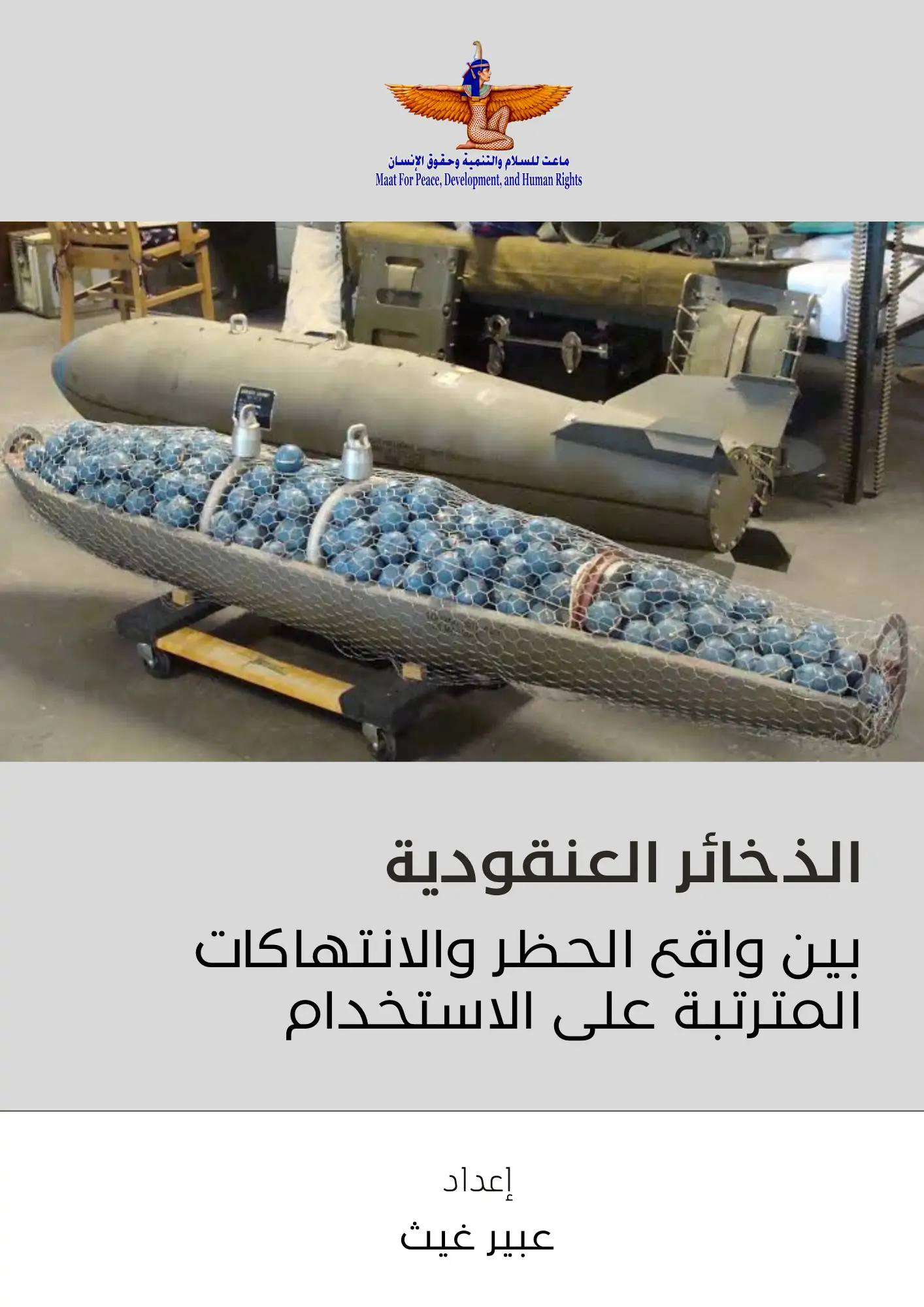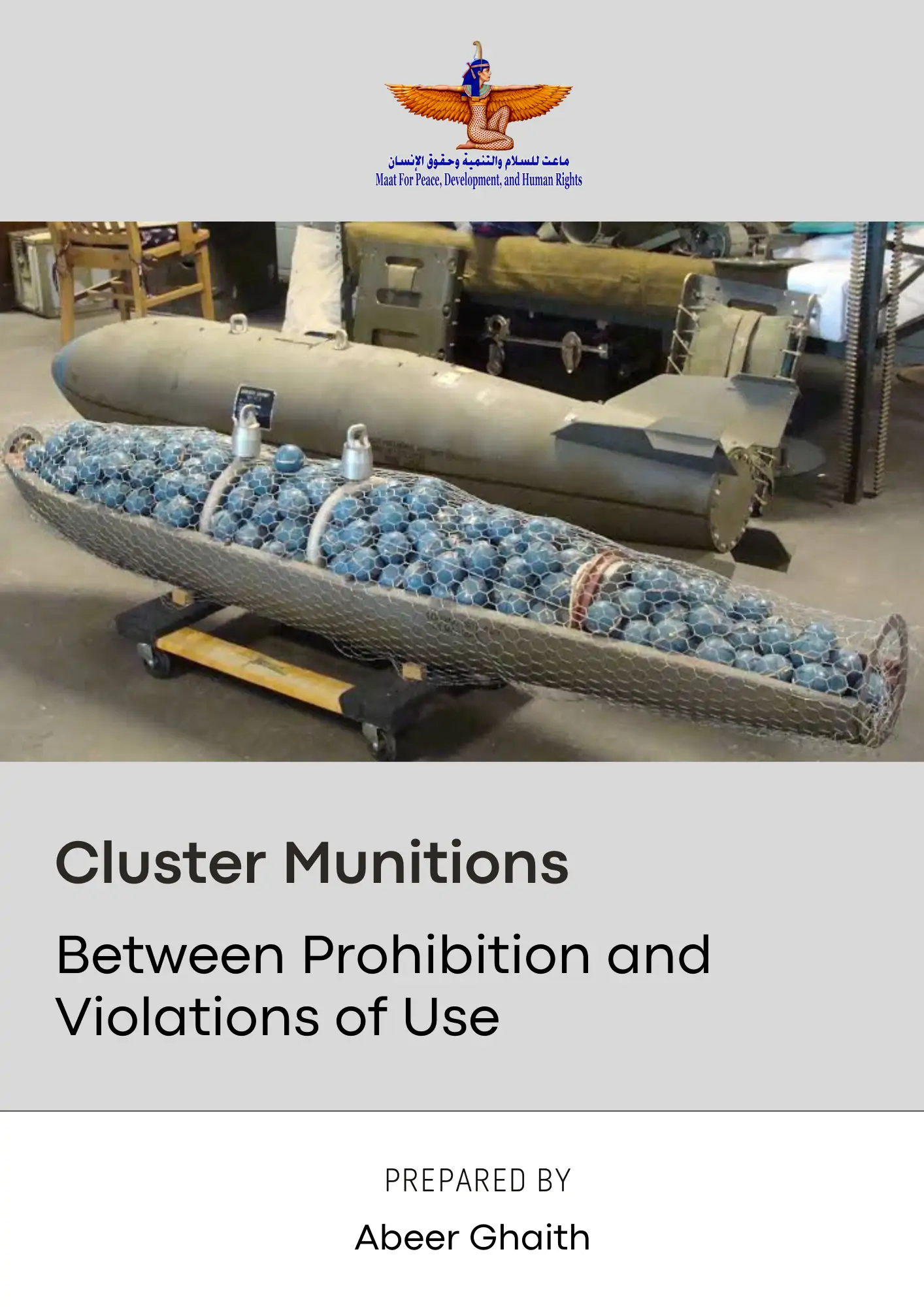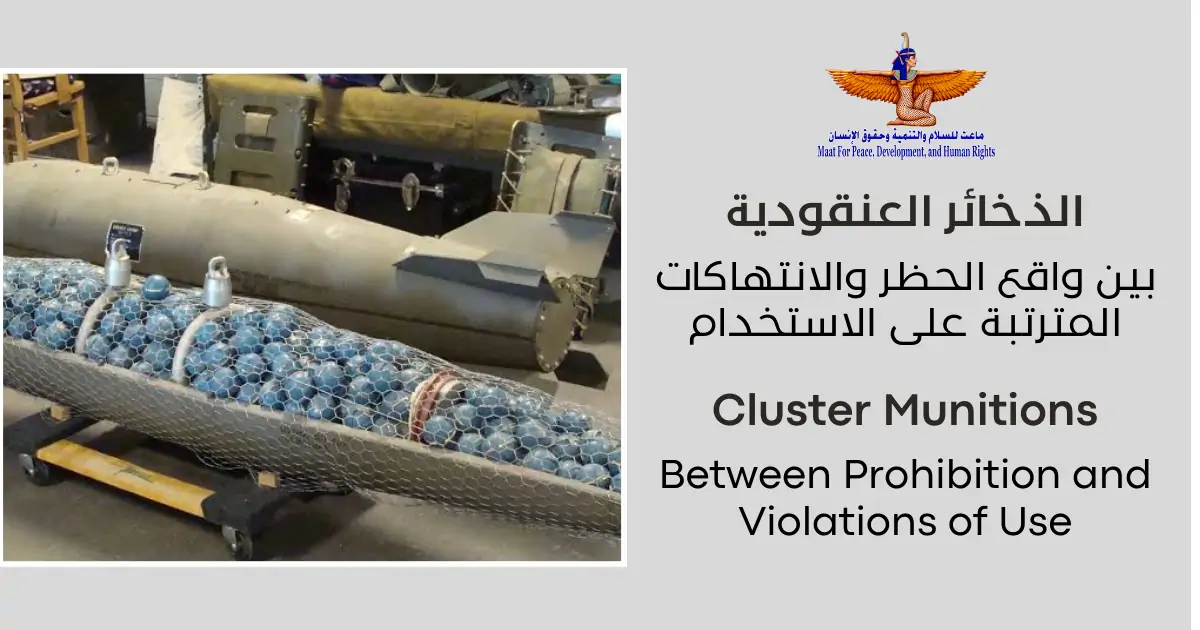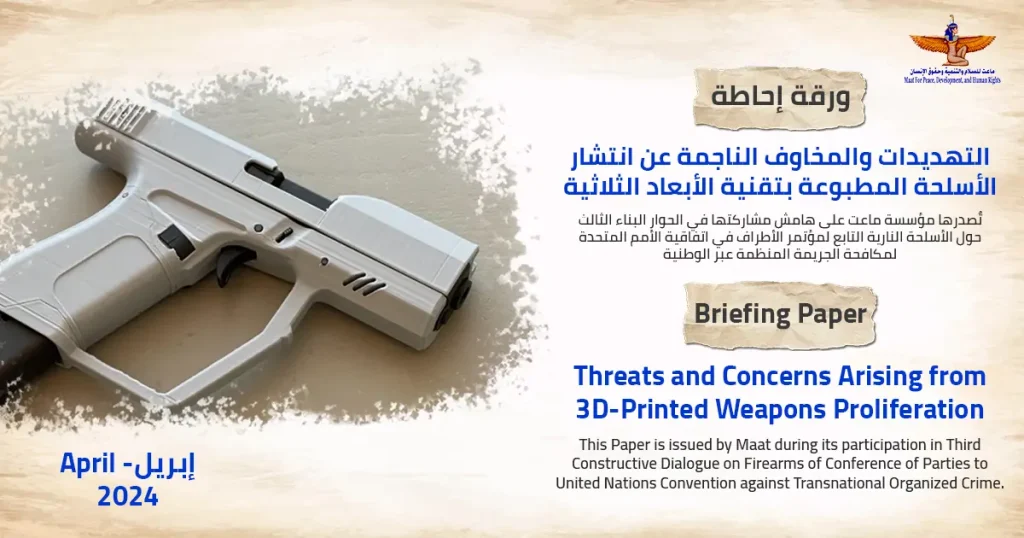Introduction:
Determining the legality of weapons in terms of their use begins with balancing military necessity and humanitarian considerations presented by the Petersburg Declaration nearly a century and a half ago. That principle has come to be summed up in three basic reasons for the ban: the prohibition of weapons that cause unnecessary suffering or injury, and weapons that have widespread or long-term environmental impact and damage to the extent that they require their prohibition in the eyes of international law, in addition to the prohibition of weapons that have indiscriminate effects. Weapons that indiscriminately hit military targets, civilians, or civilian targets are prohibited weapons in accordance with Article 51, paragraph 4, of the Additional Protocol to the Geneva Conventions of August 12, 1949, relating to the protection of victims of international armed conflicts.
The objection to the usage of cluster munitions in warfare lies in their indiscriminate nature, as they fail to differentiate between civilians and combatants. Their use has resulted in the deaths of countless civilians due to their inability to distinguish targets accurately. Additionally, cluster munitions leave behind a substantial amount of unexploded ordnance, posing a random threat to civilian lives. The international community grew increasingly concerned about the use of cluster munitions following Israel's extensive deployment of these weapons during its 2006 attack on Lebanon. The United Nations Mine Action Coordination Center estimated that Israel released approximately four million cluster munitions in 962 separate strikes. Consequently, the international community joined forces to establish regulations preventing the use of cluster munitions in armed conflicts and the destruction of existing stockpiles. The International Convention on Cluster Munitions was established in May 2008 with the objective of banning the use of cluster munitions in armed conflicts and eliminating stockpiles to prevent their future use.
Given the dangers associated with these weapons and Maat’s commitment to disarmament, particularly regarding indiscriminate weapons' impact on civilians, Maat for Peace, Development, and Human Rights presents this paper, which provides an analysis of the Convention Banning Cluster Munitions. It highlights the crucial obligations imposed on countries and examines the implementation of the Convention, while also presenting the foundation's perspective on the necessity of prohibiting these munitions.

 |
 |











